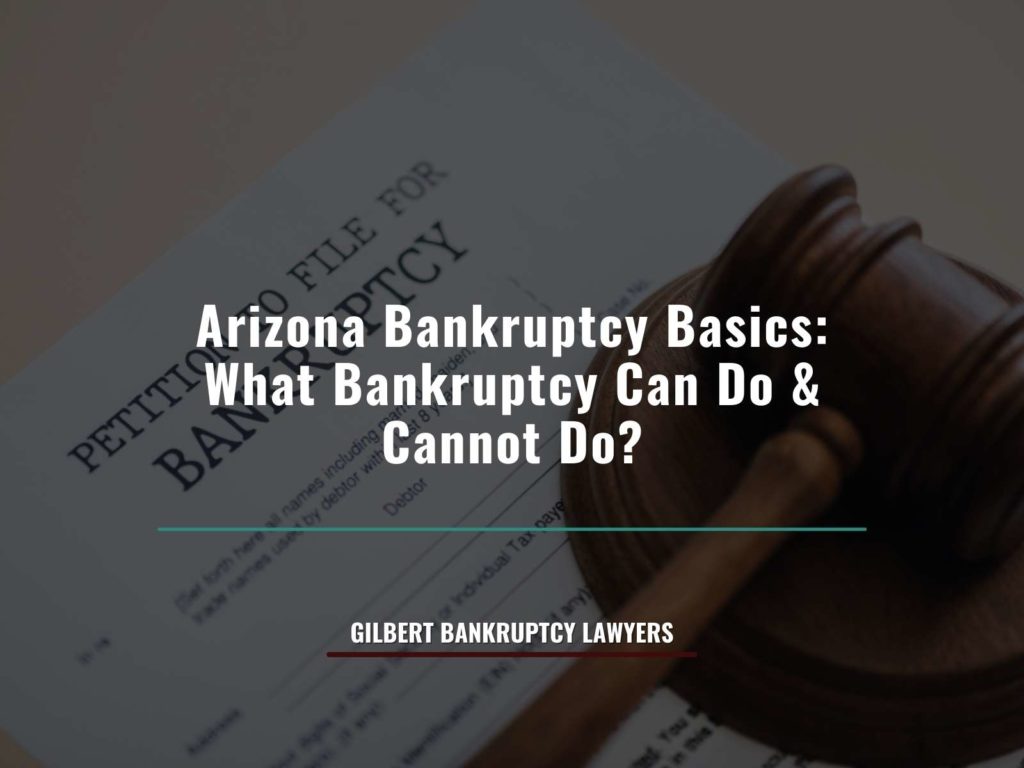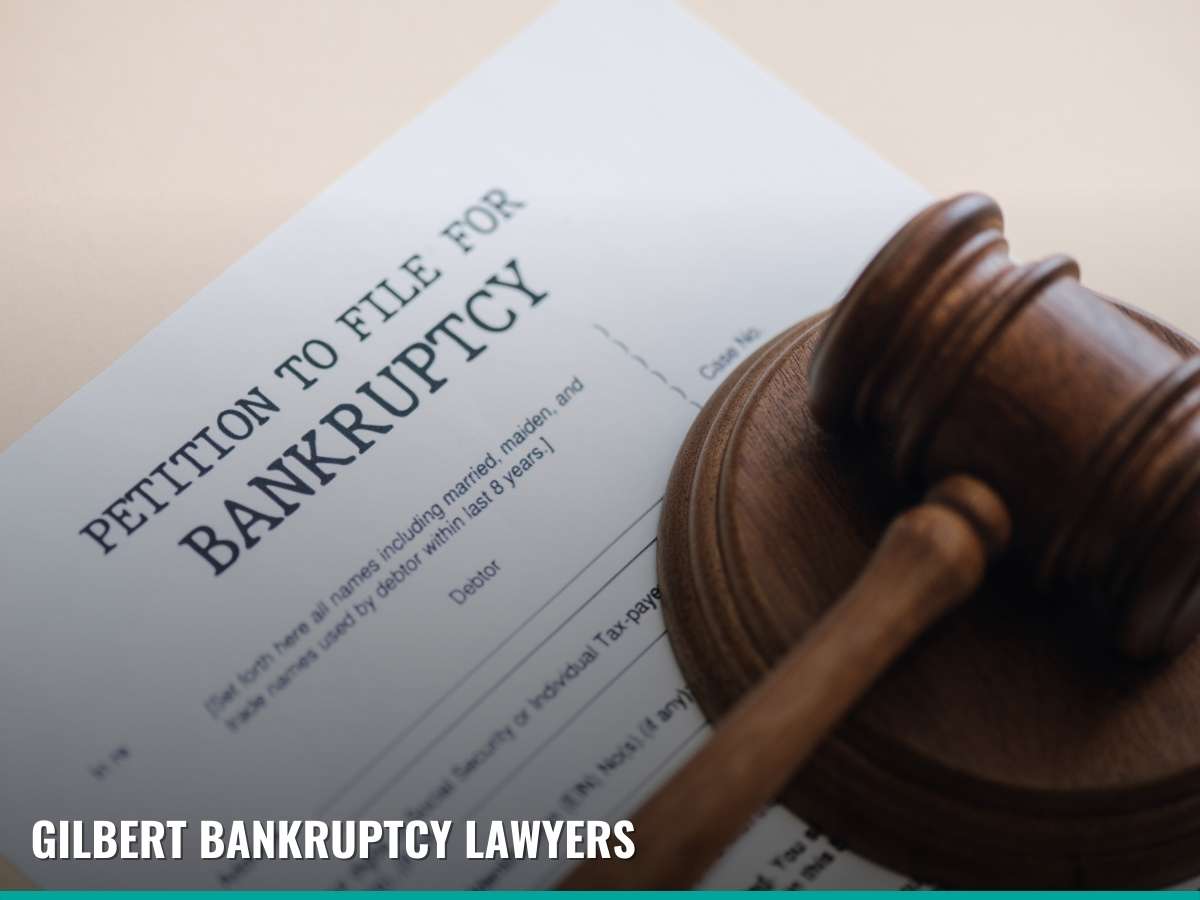Crucial Factors You Should Know Before Filing Bankruptcy In Arizona
Are you struggling with your finances right now? You may already be thinking about bankruptcy, but you should know the basics first. Bankruptcy can be useful when having financial issues, but it won’t wipe out all obligations.
Bankruptcy can stop many lawsuits and other collection activities, but cannot get rid of student loans unless you prove a hardship. This is only one of the many things you should know about bankruptcy.
Before discussing your options with a Gilbert bankruptcy attorney, we invite you to read this blog to be well-informed about Chapter 7 and Chapter 13 bankruptcy.
What Can Bankruptcy Do?
Bankruptcy allows you to wipe out some debt obligations and get a fresh new start. Chapter 7 and Chapter 13 are the most common bankruptcy types, but each one provides different advantages. Plus, each chapter treats debt differently.
You have to choose the better chapter for you depending on your financial goals and needs. Therefore, it’s always better to contact a lawyer when thinking about bankruptcy.
Generally speaking, bankruptcy can stop creditor harassment and collection activities. The court orders an automatic stay as soon as you file to stop most creditor calls and lawsuits, but not all of them. Some creditors may still collect support payments, for example.
Bankruptcy can also stop a repossession, eviction, or foreclosure for a short-term period, but only if they’re still pending.
Evictions will come to half after a bankruptcy filing, but only if they’re still in the litigation process. The automatic stay can stop a repossession or foreclosure when filing for Chapter 7, but it won’t help you keep your property. On the contrary, with Chapter 13 you can catch up on past payments to keep the asset.
A Gilbert bankruptcy lawyer can be more helpful with this topic, so contact one if possible.
Things Exclusive In Chapters 7 & 13 Bankruptcy
Both Chapter 7 and Chapter 13 offer unique solutions to your financial issues. Take into account that the chapter you file will influence how quickly you will wipe out your debt.
Chapter 7 takes three to four months to finish, while Chapter 13 allows you to pay back some portion of your unsecured debts through a three-to-five-year repayment system. Nonetheless, unsecured debt balances that remain after completing the repayment plan will get discharged.
Chapter 7 is usually recommended for low-income filers, while Chapter 13 is better for people with enough income to pay at least something to debt creditors.
In short, chapter 13 bankruptcy can:
- Stop a mortgage foreclosure and force the lender to accept a plan that allows you to make up the missed payments.
- Permit you to keep the unprotected property by a bankruptcy exemption. This allows you to save items you need to work and live using bankruptcy exemptions.
- Cramdown secured debts as long as the property is worth less than the amount you own. That’s because Gilbert Chapter 13 bankruptcy has a system that permits you to decrease an obligation to the replacement value of the property securing it.
What Cannot Bankruptcy Do?
Now that you know what bankruptcy can do, take note of the things it cannot.
- Bankruptcy cannot prevent a secured creditor from repossessing or foreclosing a property you cannot pay. With a bankruptcy discharge, you can eliminate debts but you cannot eliminate items. Therefore, the lender can take the property, sell it at auction, and apply the necessary to a loan balance.
- Bankruptcy cannot eliminate child support and alimony obligations either. They survive bankruptcy, meaning that you will keep these debts in full, even after filing for the bankruptcy case. Additionally, if you choose to file for Chapter 13 bankruptcy, you will have to pay this debt in full.
- Bankruptcy cannot wipe out student loans (some exceptions apply). You can discharge student loans only if you can prove that repaying the loan will cause you “undue hardship”, which is very difficult to prove.
- Bankruptcy cannot eliminate most tax debts. This is indeed a very difficult thing to do, although it’s possible sometimes for older unpaid tax debts.
Bankruptcy cannot wipe out other nondischargeable debts either (even if you contact a Gilbert bankruptcy lawyer), including:
- Debts you forgot to list in your bankruptcy list
- Debts for personal injury or death due to DUI
- Fines and penalties that were charged as punishments (for example, criminal restitution).
With Chapter 7, these debts remain until your case is over. But, with Chapter 13, you will have to pay these debts in full.
Finally, bankruptcy may eliminate debts related to fraud, but it all depends on certain circumstances.
Need More Help? Contact a Gilbert Bankruptcy Lawyer
If you want to have a fresh start with your finances, contact Gilbert Bankruptcy Lawyers for a reliable solution. Our team of experienced lawyers will help you schedule a FREE consultation at your convenience so that you can be closer to a debt-free lifestyle. Reach out to us via website or phone to get started!
Gilbert Bankruptcy Lawyers
Office: 480-448-9800
Email: info@myazlawyers.com
Website: https://gilbertbankruptcylawyers.com

